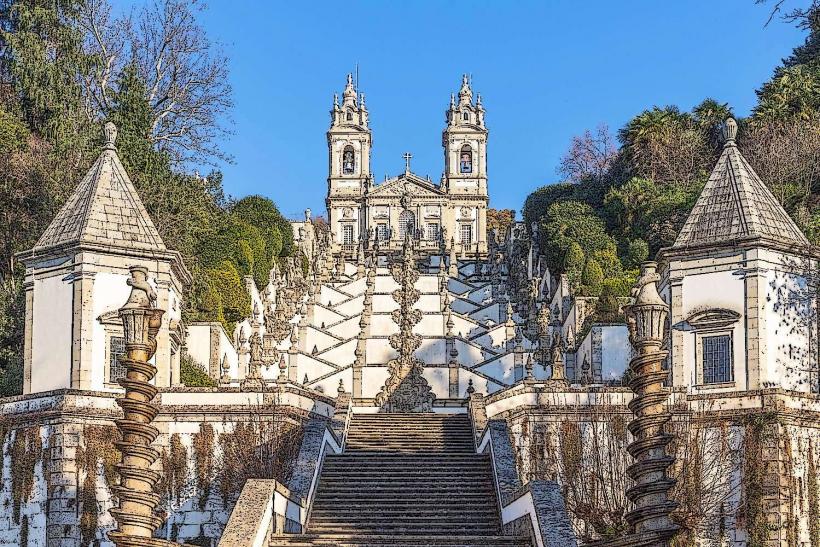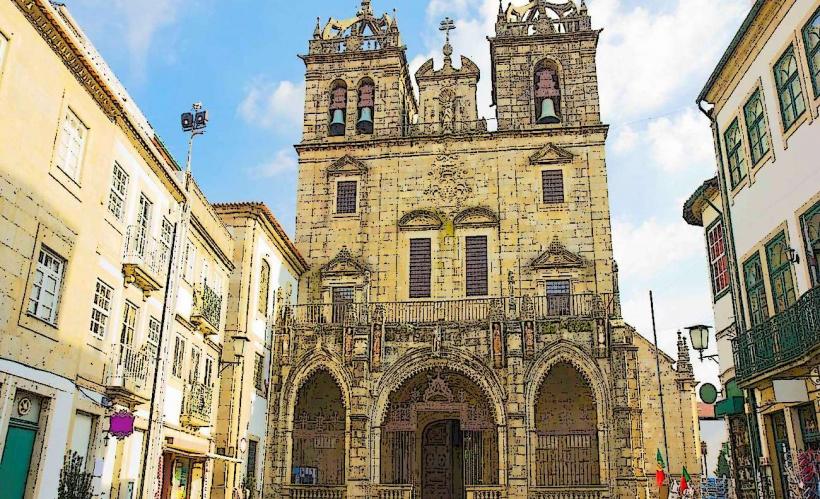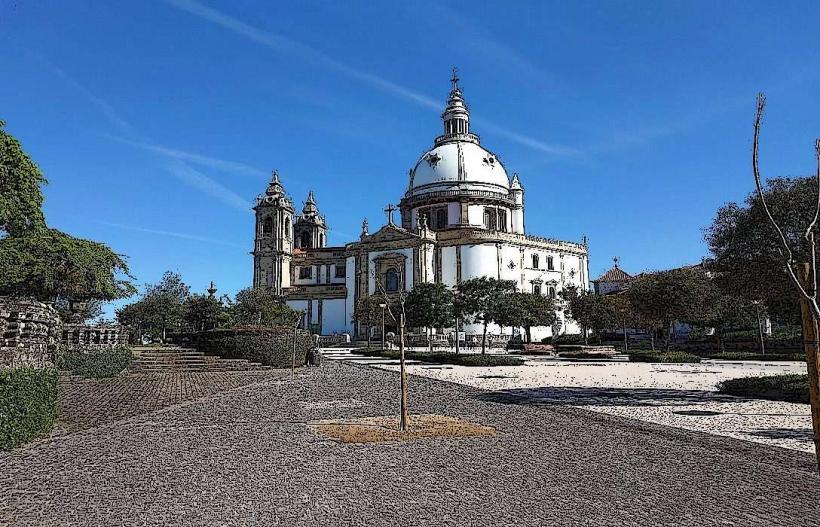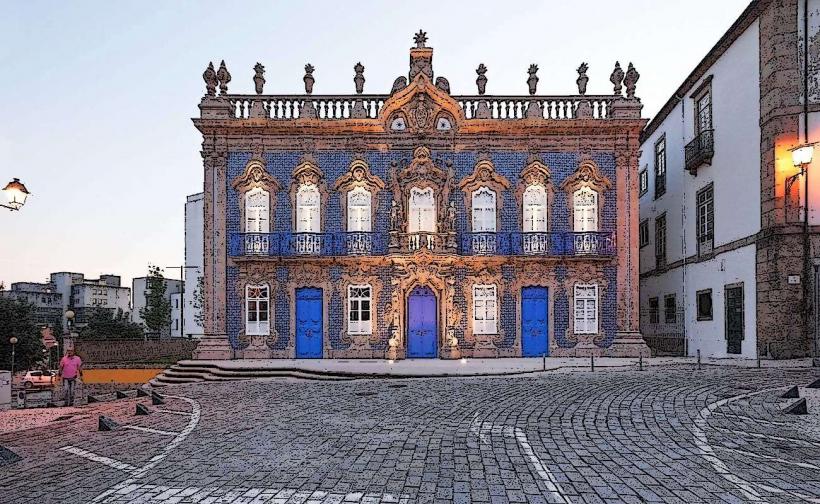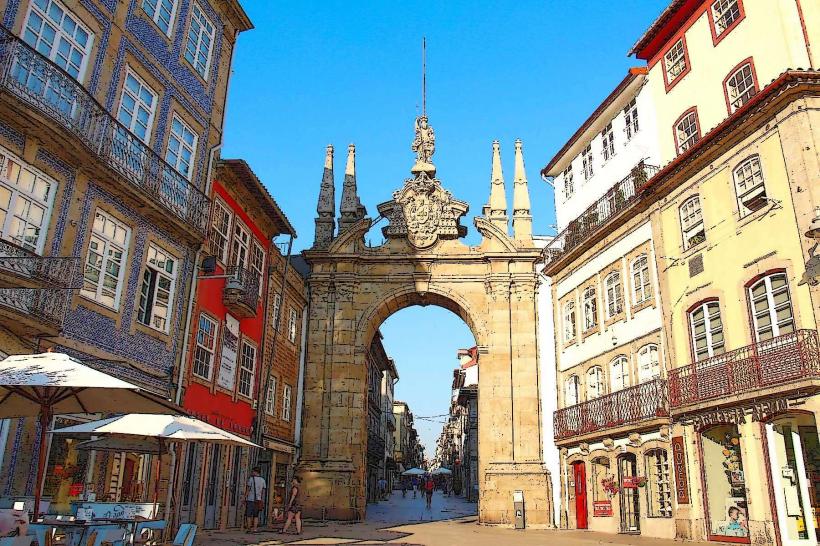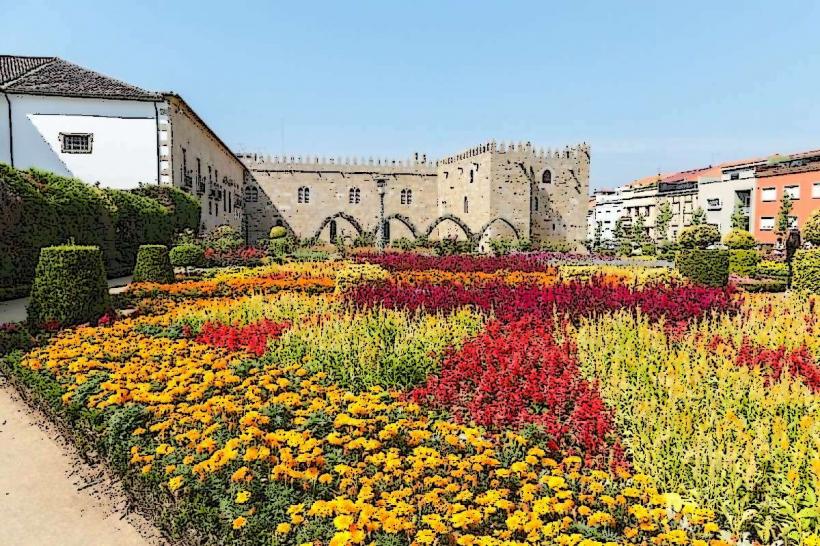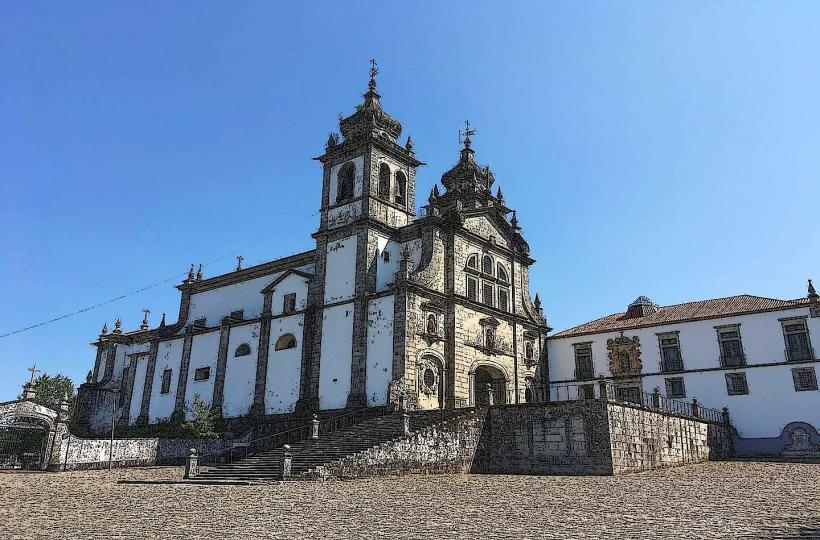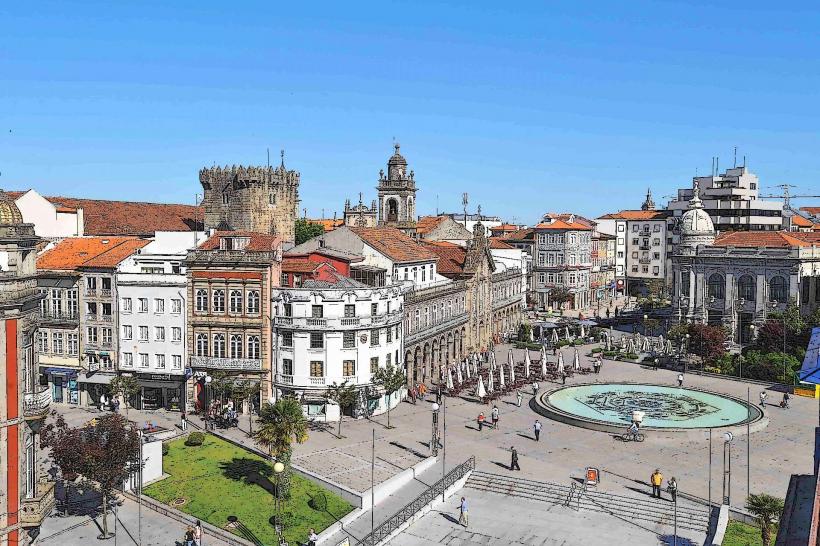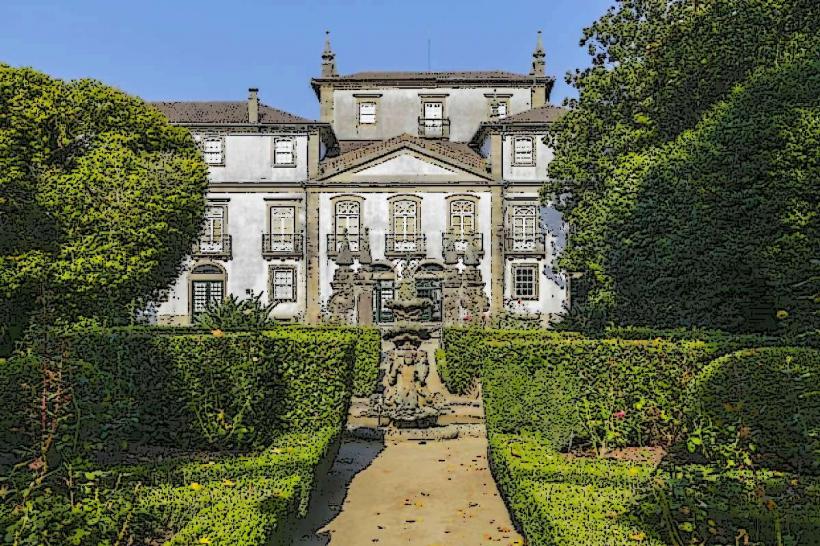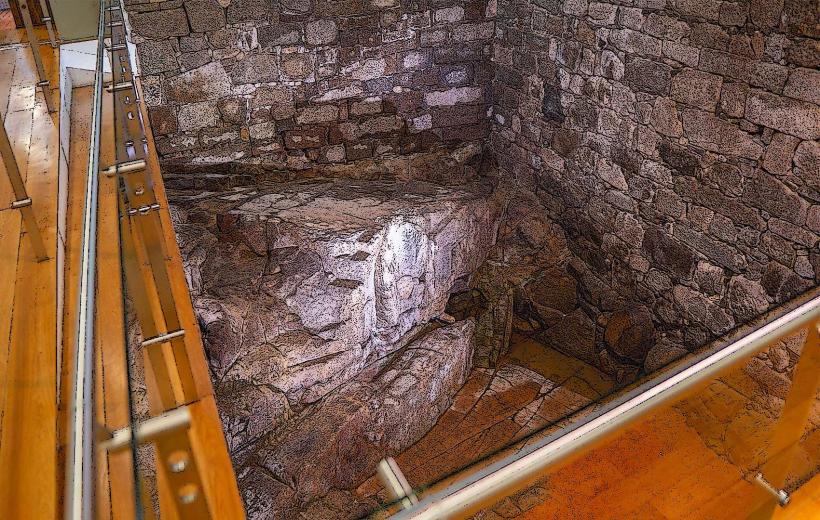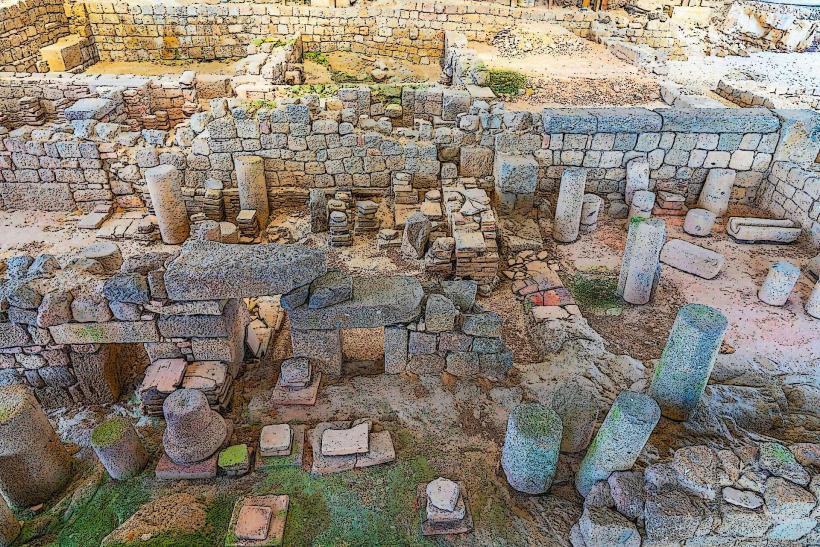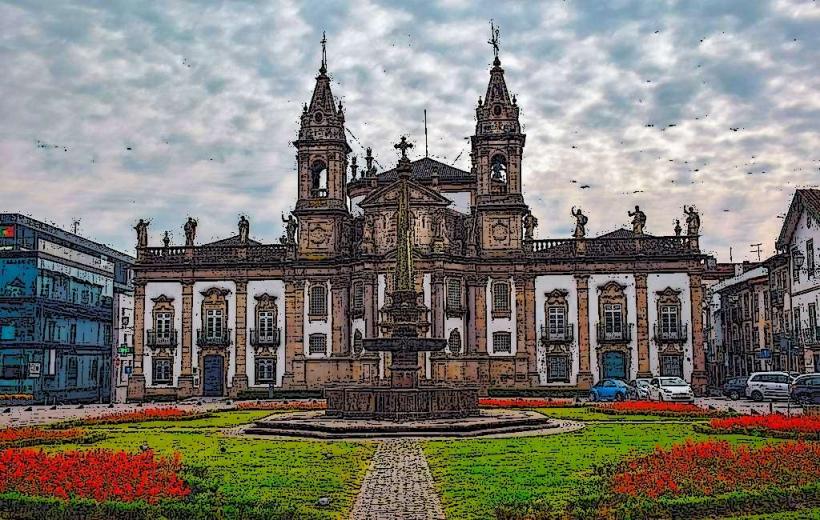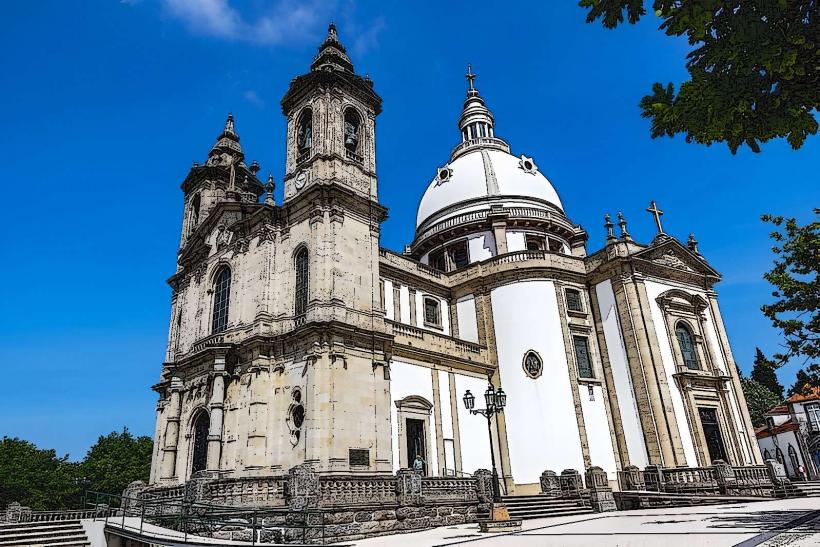Information
City: BragaCountry: Portugal
Continent: Europe
Braga, Portugal, Europe
Braga is a major city in Northwest Portugal and the administrative center of the Minho region. Known as the "Rome of Portugal," it is the nation's oldest city and its primary center for ecclesiastical history and Baroque architecture.
Visual Characteristics
The urban landscape is defined by a high density of religious monuments and granite Baroque facades. Key visual anchors include the Bom Jesus do Monte Sanctuary, featuring a monumental zigzagging Baroque stairway, and the Braga Cathedral. The architecture is characterized by "Braga Baroque," utilizing local dark granite contrasted with white lime. The city center features high-density pedestrian zones with integrated public gardens, most notably the Garden of Santa Barbara.
Location & Access Logistics
Braga is located 55 kilometers north of Porto and 50 kilometers south of the Spanish border. It is served by Braga railway station, the northern terminus for the high-speed Alfa Pendular service, providing direct links to Porto (1 hour) and Lisbon (3.5 hours). The nearest international airport is Francisco Sá Carneiro (OPO), connected by a direct 50-minute shuttle bus. Vehicle access is via the A3 and A11 motorways. Parking is concentrated in the underground Praça da República and Liberdade lots.
Historical & Ecological Origin
Founded by the Romans in 16 BCE as Bracara Augusta, it served as the capital of the province of Gallaecia. Geologically, it sits in a fertile valley surrounded by granite mountains. The ecology is defined by the high-frequency rainfall of the Minho region, supporting lush, temperate vegetation and the nearby Peneda-Gerês National Park. Historically, the Archbishops of Braga held supreme religious authority in the Iberian Peninsula, influencing the city's development as a "sacred city."
Key Highlights & Activities
The Sanctuary of Bom Jesus do Monte is a UNESCO World Heritage site and the city’s primary destination, accessible via the world’s oldest functioning water-balanced funicular. Braga Cathedral (Sé de Braga) is the oldest in Portugal, displaying a high-density mix of Romanesque, Manueline, and Baroque styles. The Biscainhos Museum showcases an 18th-century aristocratic palace and gardens. The Raio Palace is a premier example of exuberant Rococo architecture. The "Noite Branca" (White Night) is a major contemporary arts festival.
Infrastructure & Amenities
The city center is heavily pedestrianized and equipped with public restrooms in the Praça da República and the municipal market. 5G cellular coverage is universal. The "TUB" (Transportes Urbanos de Braga) bus network provides extensive transit; the city is also a hub for e-scooter sharing. Drinking water fountains are located in the Garden of Santa Barbara. Retail is concentrated on Rua do Souto. Dining is densest near the Cathedral and Praça da República, specializing in Bacalhau à Braga (cod) and Pudim Abade de Priscos.
Best Time to Visit
The climate is Mediterranean with significant Atlantic influence, resulting in high humidity and mild temperatures. May through September is optimal for outdoor festivals, with temperatures between 22°C and 27°C. Holy Week (Semana Santa) is the city's most significant cultural event, featuring high-density processions. Photography of the Bom Jesus stairway is best at sunset to capture the western light on the granite.
Facts & Legends
Braga is the youngest city in Portugal by average population age due to the University of Minho. A local historical oddity: the phrase "Eres de Braga?" (Are you from Braga?) is used in Portugal to refer to someone who leaves doors open, referencing the city's historic Arco da Porta Nova, which never had a physical door. Legend holds that the city was founded by the Greek hero Hercules, though Roman archaeological evidence is the primary historical record.
Nearby Landmarks
Braga Cathedral (Sé): Central hub (Old Town)
Praça da República: Main central plaza
Bom Jesus do Monte: 5.0km East of center (High elevation)
Sanctuary of Sameiro: 2.0km further East of Bom Jesus
Garden of Santa Barbara: 0.2km North of Cathedral

